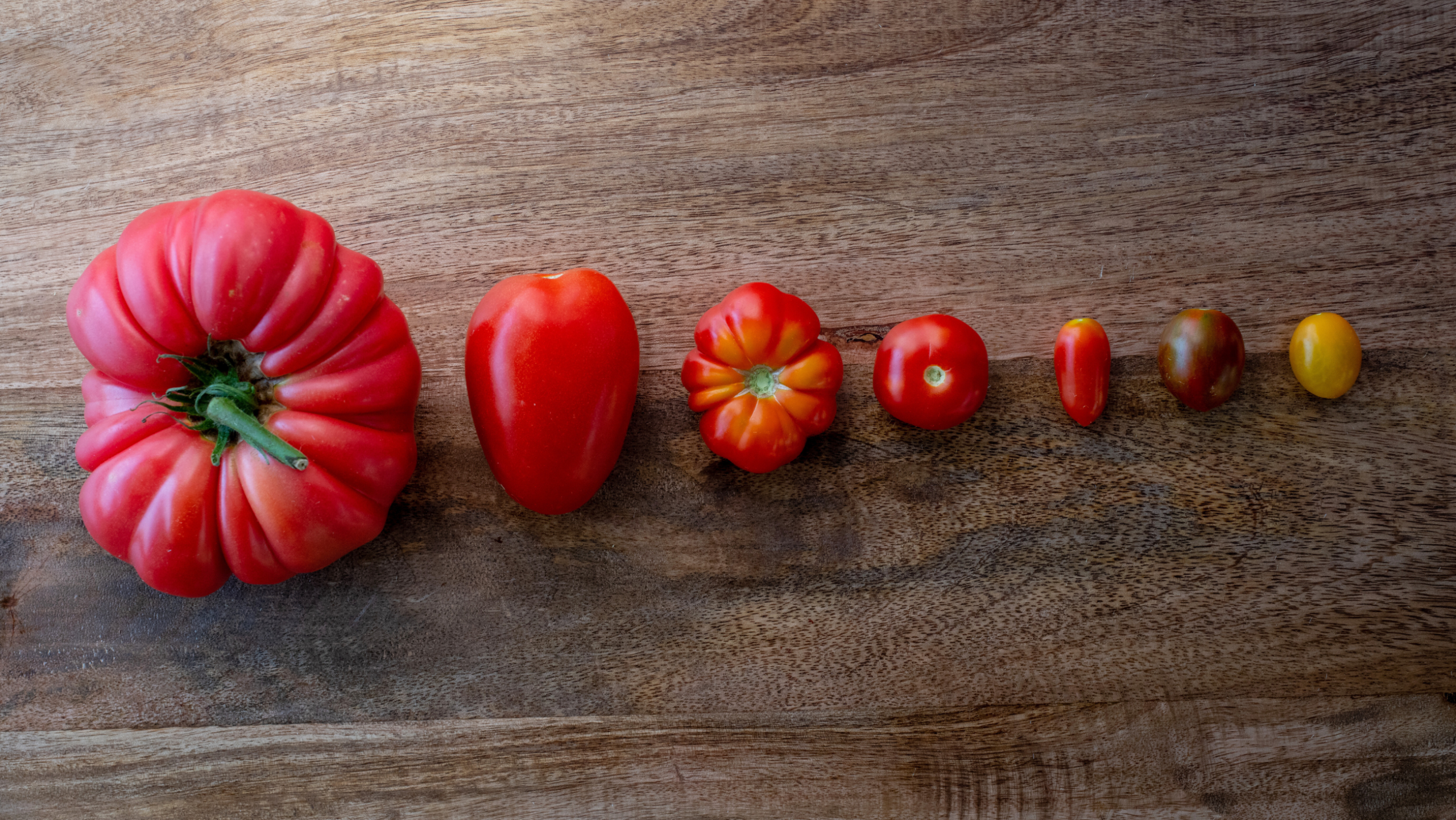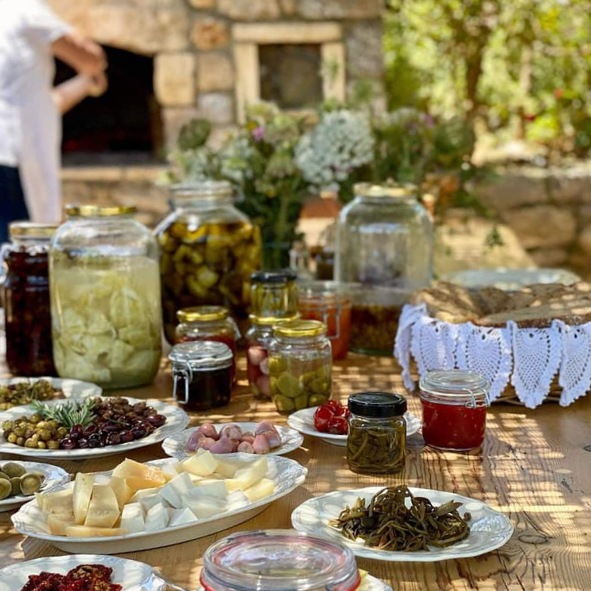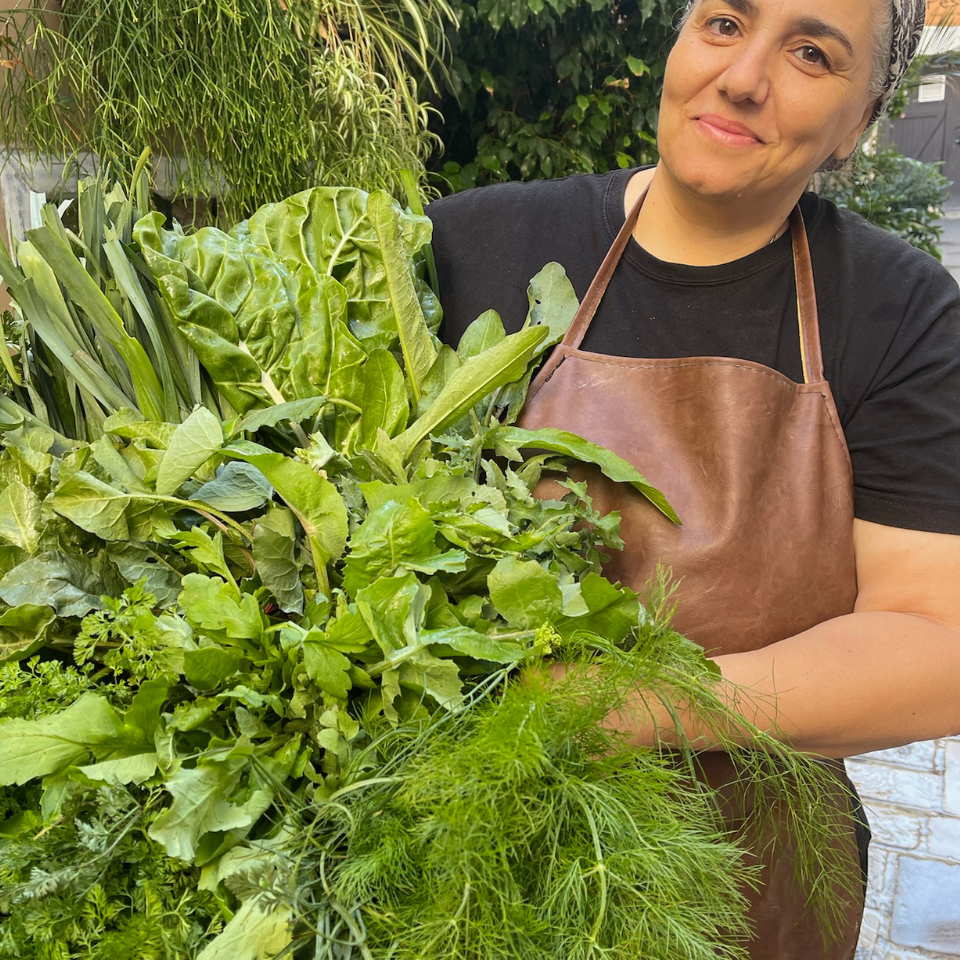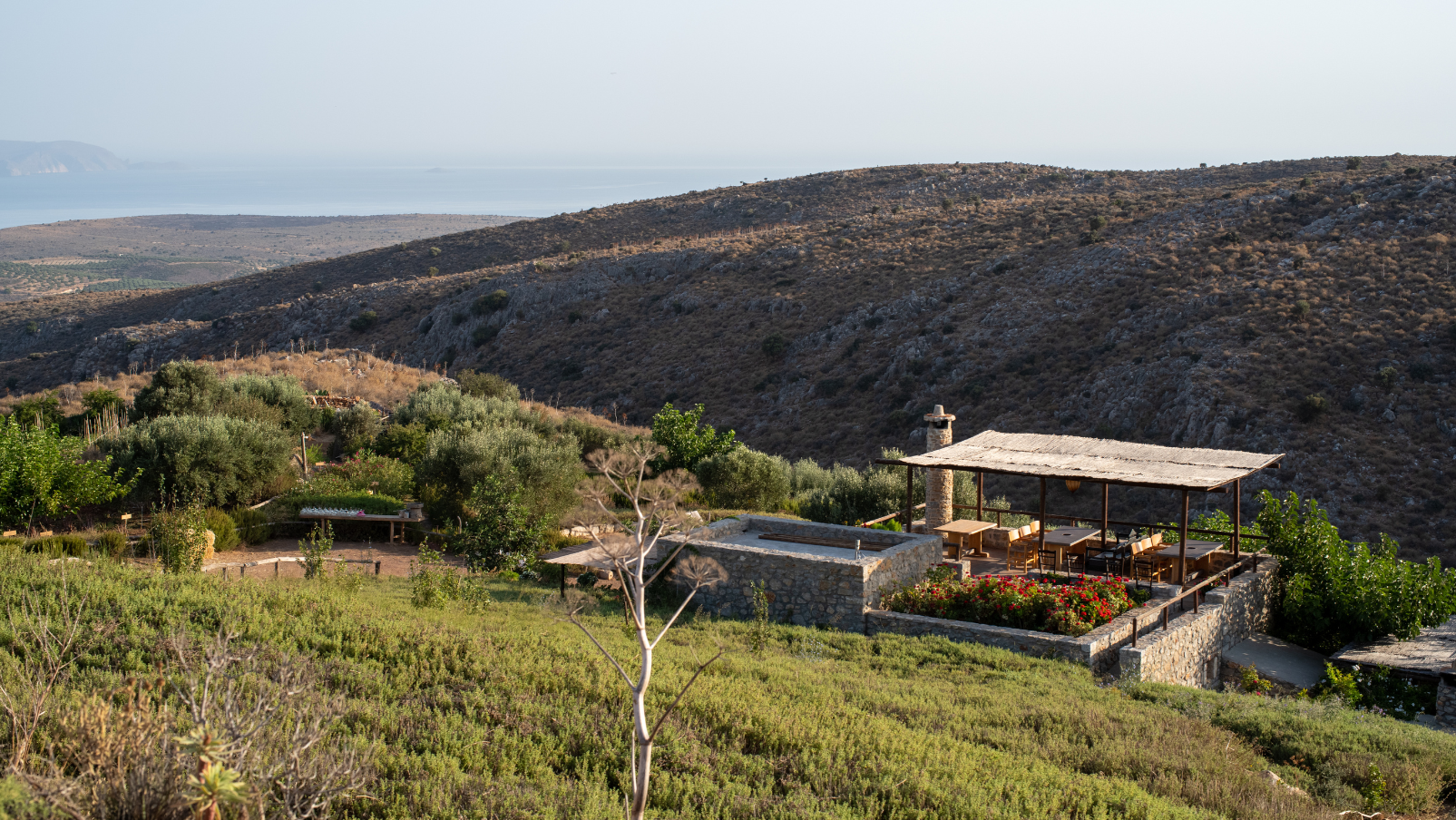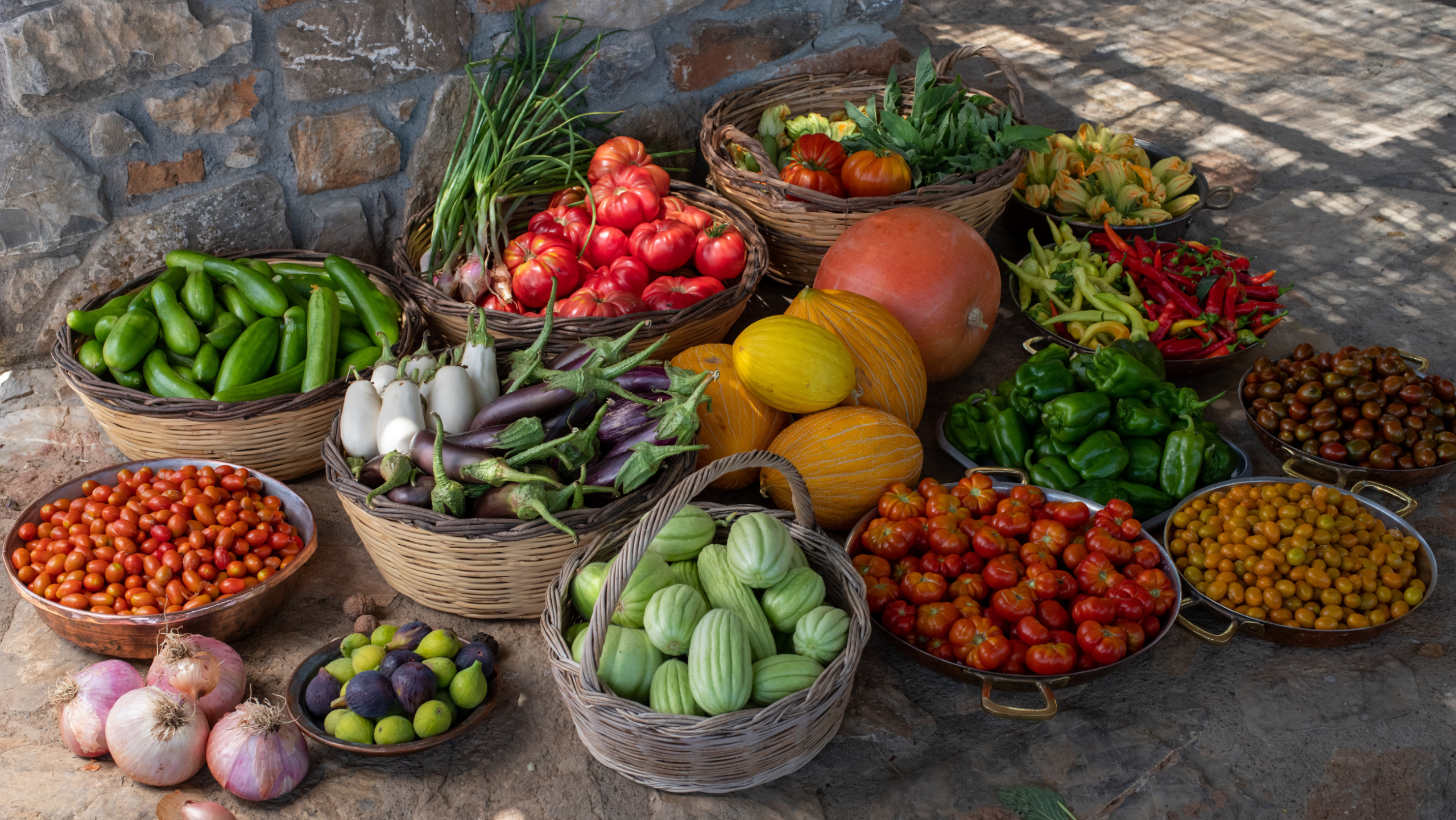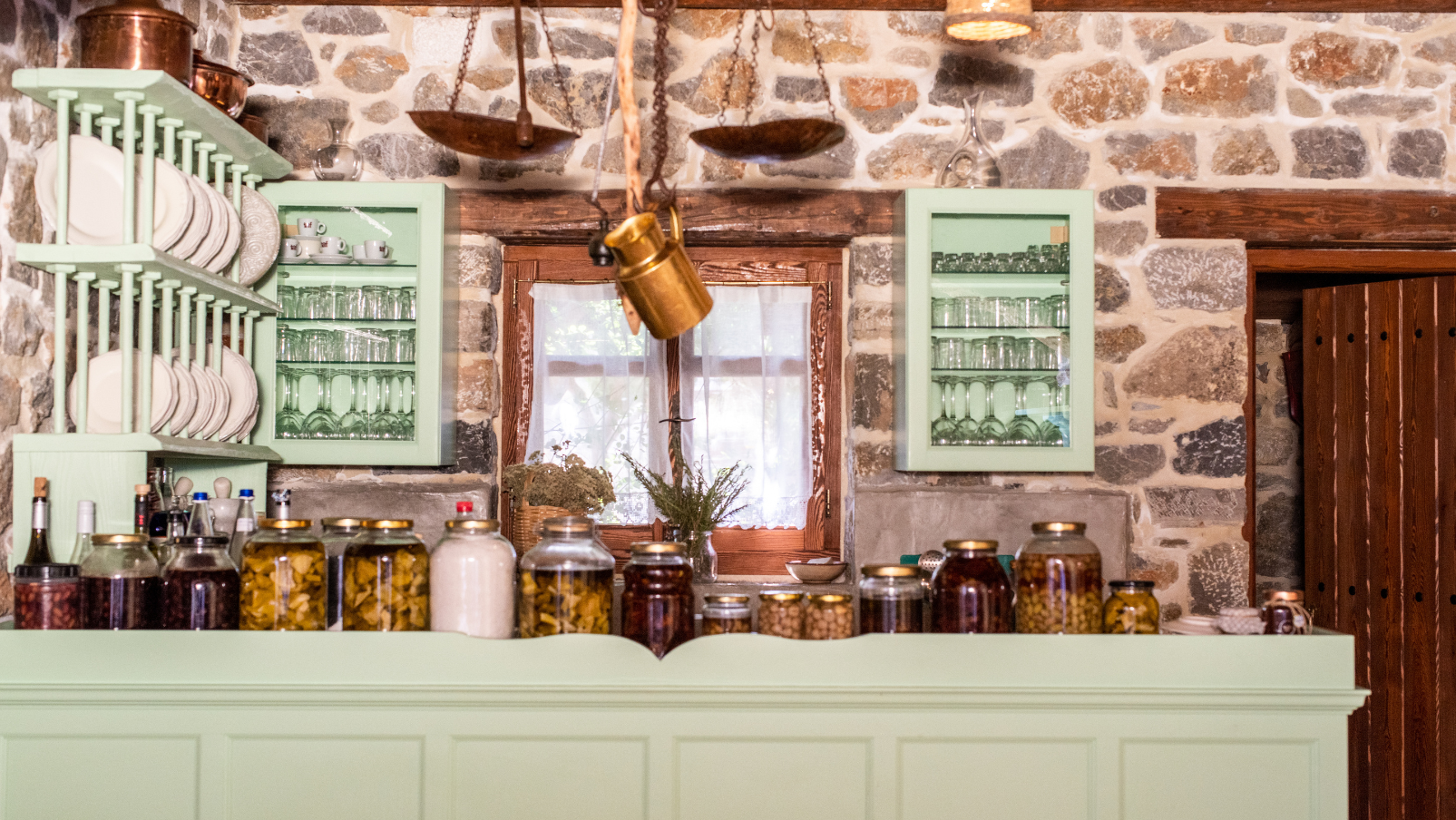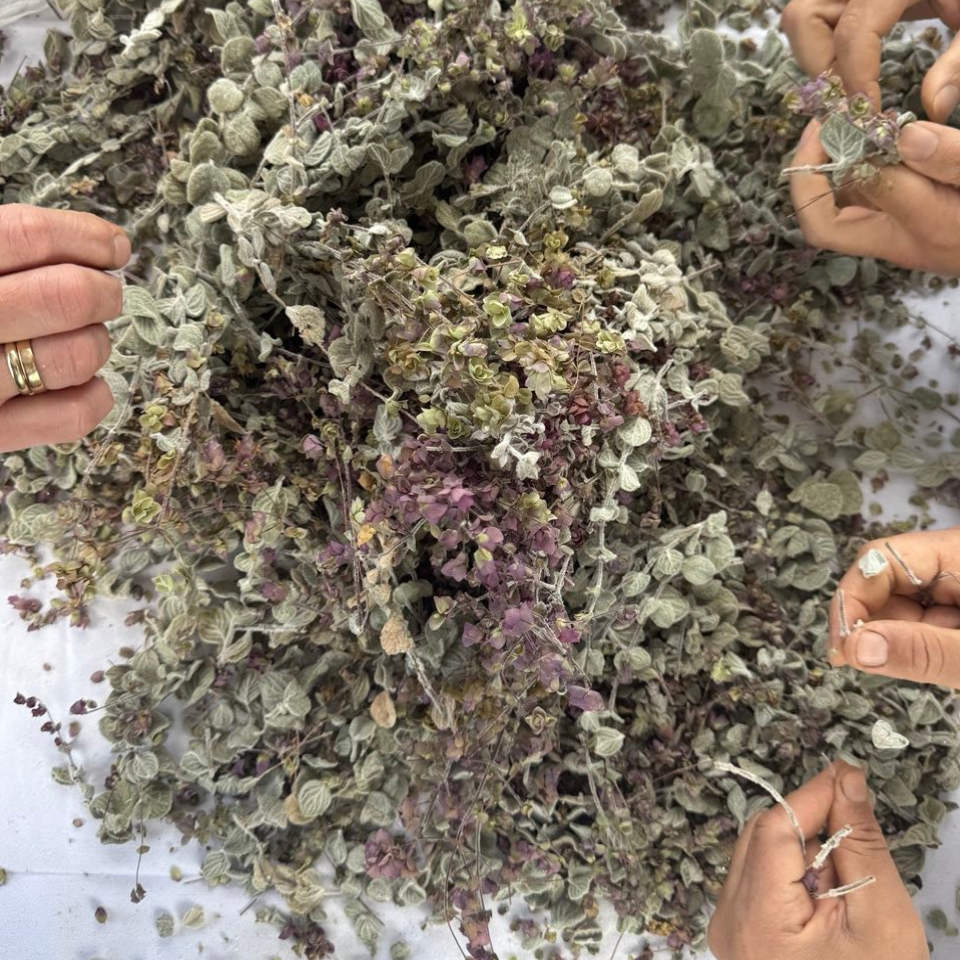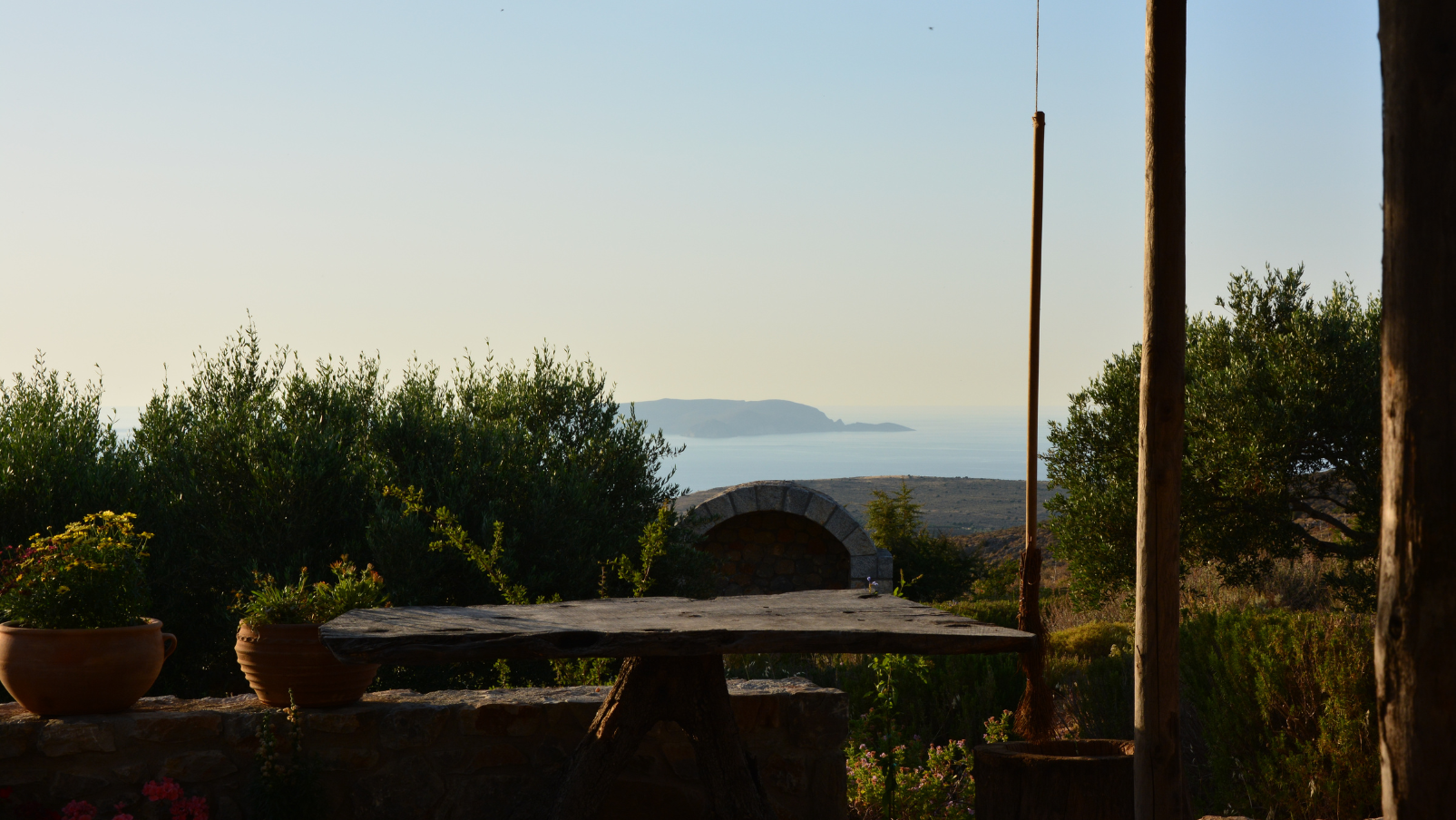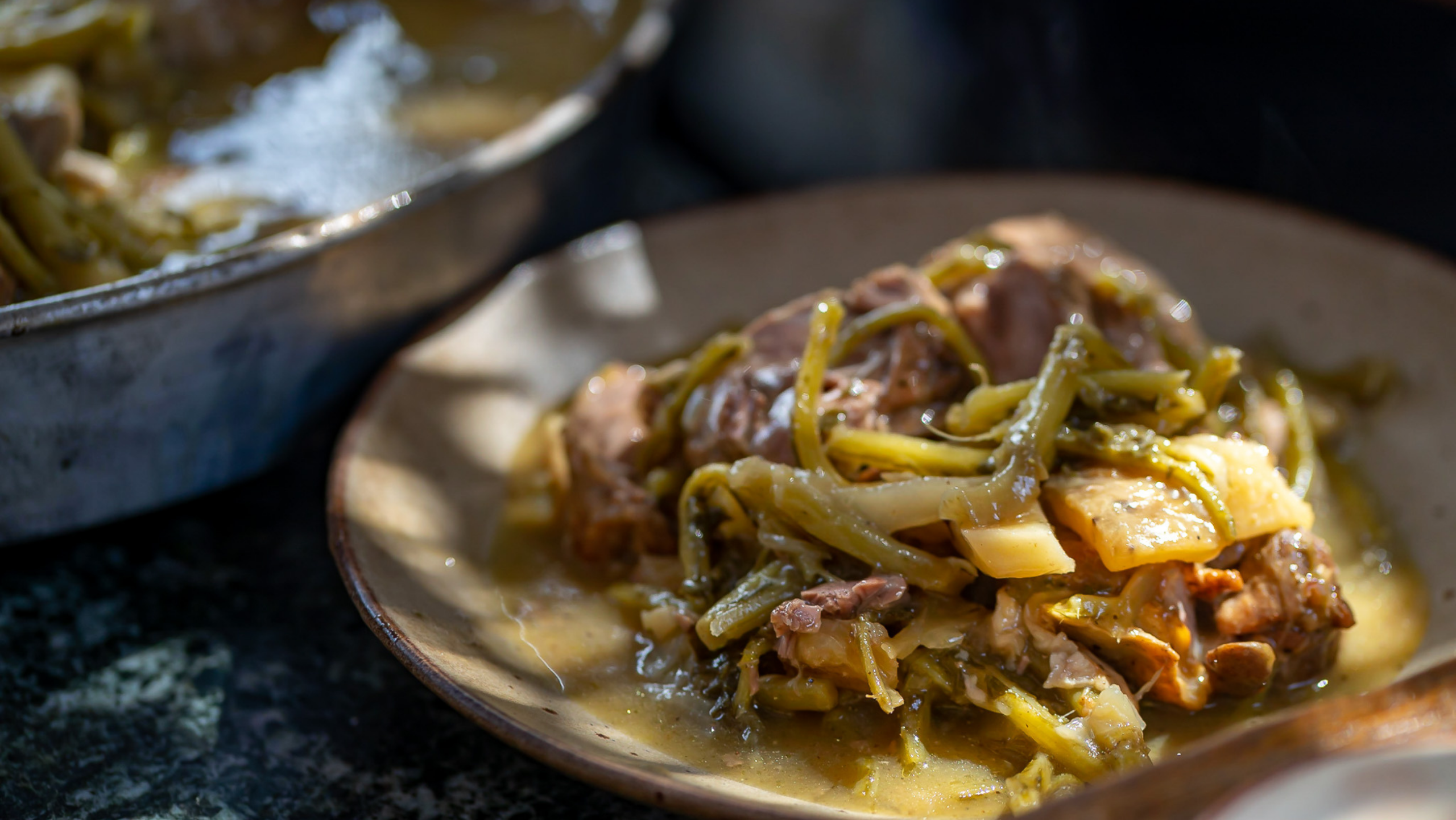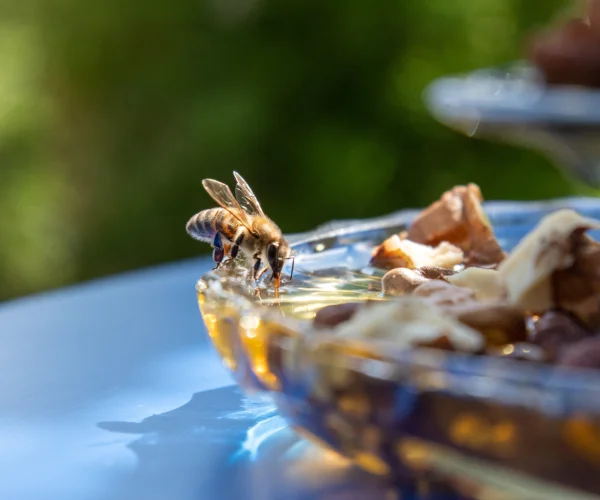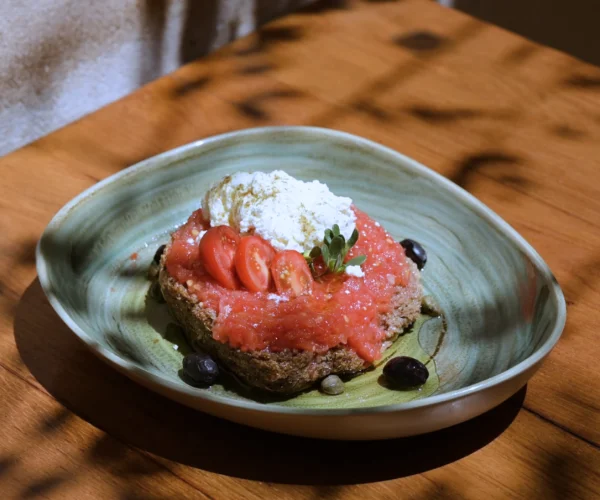Cretans have dozens of arguments ready to convince you that their food is good, so it is worth eating. Whether you live in Crete or if you’ve visited even once, you definitely know the top three. Counting down from “my food doesn’t make you fat” (even if it’s a staka with eggs), to “You’ve never tasted anything like this in your life” (even if it’s just a tomato), one remains the top and unbeatable argument even today: “Eat what’s ours!”. On hearing this, all intention of abstinence collapses and all hope of denial is extinguished.
Our own peskesi…
● Globally, 22 trillion tones of food are transported over vast distances every year, with 7 out of 10 foods crossing borders before reaching our plates (Carbon Brief).
● This massive food transport produces 3 billion tones of CO2 per year – more than three times the entire global airline industry (0.88 billion tonnes) (Nature Food, Air Transport Action Group).
While, local food systems produce 5-17 times less CO2 than conventional distribution systems (Worldwatch Institute, cited in Stanford Magazine).
● 1.3 billion tons of food are thrown away globally each year – 1/3 of all production – while 783 million people go hungry (World Food Organization).
● 75% of crop genetic diversity was lost in the 20th century as farmers abandoned local varieties for commercial ones (World Food Organization).
● The global food system threatens 24,000 of the 28,000 species (86%) at risk of extinction (United Nations Environment Programme).
In this global context, our peskesi, our gift, is the preservation of the cycle that keeps the Cretan tradition alive through localness and sustainable gastronomy. It is that we continue to produce and cook in our land, it is the knowledge we pass on, our support for local ethical producers, the seeds we keep, the recipes we revive, the relationships we build.
When someone enjoys a dish in our restaurant, they are part of that cycle. They become part of a community that believes that food is more than fuel for the body – it’s a connection between people and the earth, it’s culture, it’s love.
The World Days of Sustainable Gastronomy (18 June) and Localism (20 June) remind us that what we have been doing in Crete for centuries is now of global significance. That the phrase “eat what’s ours” is not the Cretans’ stubbornness to eat their food, but the compass for a sustainable future. A future where every place has its own products, its own people, its own flavors, its own stories to share.
And one step further… when Cretans say “eat what is ours”, what they mean is that they offer you to eat what they would give their child, which is their best. Tomorrow, what will we offer ours?
“Because it’s ours”
How can three words win a “war”?
It’s poetry.
They condense dozens of meanings into just one sentence, like a “mantinada”.
They are ours, so if they are – for example – vegetables we produced them in our own country and we know what seeds we sowed, where we planted them, when we planted them, when we watered them, what fertilizer we applied – and what we didn’t apply, what the neighbor applied – and what he didn’t apply, when we harvested them, when – and by when – we have to eat them. That’s why we give them to you with confidence to eat them.
It’s ours, so if it’s food, we cooked it in our place and we know what ingredients we put in, the recipe we’ve been cooking for years, how we cooked it, how long it took, how much passion we put into it, how much anxiety we had to make it work, when – and by when – we have to eat it. That’s why we give you the confidence to eat it.
And yet, “because it’s ours” doesn’t always mean we produced or cooked it. Sometimes it means it’s my sister’s, my best man’s, my cousin’s, my closest friend’s. In other words, a relative – by choice or not – who we know cares about us, so they give us their best. That’s why we give them to you with confidence to eat them.
Food from place
Not all space becomes a place. Place is more than that – it is the space that people explore, understand, love, care for. It is where they become community. Where they learn how to interact with the land, the water, the plants, the animals. Where they build bonds of trust with each other and the environment that nourishes them. It’s where they build culture and identity. This is their place.
In Crete, every groove, every hillside, every olive grove has a name. And behind every name is a story of people who learned what grows there, when, how. Who understood when the wind blows and how to protect their crops. Who found out which greens are harvested in February and which in October, how much to put in the grass pots, and how much of each. Who got to know every neighborhood, every family, every character. This knowledge doesn’t come from books or the internet. It comes from generations passing the torch silently, through everyday actions. From the grandfather who shows us how to “read” the signs of the weather and the grandmother who teaches us which herbs go with what food, to the farmer who knows exactly when a tomato is ready – not when it’s red, but when it tastes just right.
Food for thought
Ironically, in today’s information age, true knowledge has become a luxury. We buy food that we don’t know where it comes from, from people we don’t know who they are, produced by methods we don’t understand. We have surrendered our judgment to systems that promise to protect us but often leave us vulnerable.
In contrast, in localism, trust is an everyday reality built over centuries on specific relationships and actions. When today’s local ethical cheesemaker produces cheese – in all likelihood – he is the son of Mrs. Maria who has been making cheese for years, a mother who raised three children on that cheese, a woman who for forty years has gone out into the mountains every morning to water her animals, the daughter of Mr. Manolis who made the best cheese in the region.
Trust is built. When this cheesemaker gives you cheese, it’s as if Mrs. Maria is giving you a piece of her life. And you take it because you know that if Mrs. Maria gave you something bad, she wouldn’t be able to look her neighbor in the eye, she wouldn’t be able to go to church on Sunday, she wouldn’t be able to take pride in her work.
This is what makes localism so powerful: it is not only based on laws and regulations, but on the deepest human needs for social coexistence and dignity. Producers do not make good products simply because they are obliged to, but because their identity is linked to the quality of their work. Because when one tastes his product, one tastes a part of him. This creates a circle of responsibility. This circle works because everyone knows everyone, because the consequences of actions are immediate and visible. On the ground is you, your work and your life – nothing more, nothing less.
The “right job”
What we now call sustainable gastronomy, our grandparents simply called “doing things right’”. They knew in their own country where, when and how to grow and they didn’t throw anything away, because they knew that everything had value. This cycle did not come from environmental and social consciousness, but from necessity. But the result was the same: a system that respects nature and place and does not deplete them. That takes as much as it needs and gives back as much as it can.
Nowadays, this wisdom is lost in a world where food travels thousands of miles to reach our plates, where food is produced in factories rather than on farms, where we lose touch with the seasons and the cycles of nature.
We ask ‘where we eat’ instead of ‘what we eat’ and ‘who made it’.
When we don’t know where our food comes from, we lose control over what we put into our bodies. When we don’t know who produces it, we don’t know who is committed to us about what we eat. When we don’t understand the processes of production, we become unwilling consumers in a system.
Locality brings us back to the right questions: Who grew what we eat? Where did it grow? How? When was it harvested? How did it go from seed to food?
When we know where our food comes from, we can make informed choices. When we know who produces it, we build trusting relationships. When we know how it is produced, we can support practices that respect the environment and people.
This is a condition where taste has a history and history has meaning.
What can we do?
● We care about the origin of our food
● We buy from local producers and build trusting relationships
● Eat seasonally
● Cook
● We don’t throw food away
● We choose catering outlets that care and source locally
● We prefer less but quality over more but cheap
● We share knowledge and experiences about food
Sources:
- Air Transport Action Group (2024). Facts & figures.
- Carbon Brief (2022). ‘Food miles’ have larger climate impact than thought, study suggests.
- Food and Agriculture Organisation (2010). What is Happening to Agrobiodiversity?
- Food and Agriculture Organisation (2011). Global food losses and food waste.
- Li, M., Jia, N., Lenzen, M., Malik, A., Wei, L., Jin, Y., & Raubenheimer, D. (2022). Global food-miles account for nearly 20% of total food-systems emissions. Nature Food, 3(6), 445-453.
- Stanford Magazine (2012). Eat Local, Save Energy. Worldwatch Institute.
- United Nations Environment Programme (2021). Our global food system is the primary driver of biodiversity loss.
